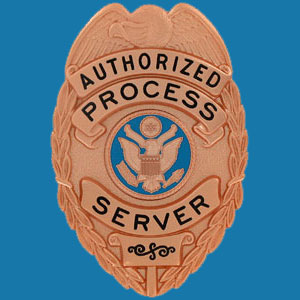
A process server license is a requirement in some jurisdictions for virtually anyone who wants to serve legal process regularly. It is true that some areas of the country do not require process servers to be licensed or bonded, but most others do set forth stringent guidelines as to the credentials a process server must possess.
In some areas, process servers only need to be licensed if they serve a certain number of legal processes per year, while in other areas, attorneys admitted to the local bar association are exempt from licensure.
This guide helps aspiring and professional process servers to fully understand the official governmental licensure requirements that are imposed on their vocation.
What is a Process Server License?
A server’s license may be required for people who choose to make full or part time process service their chosen career. Licensure grants a person the legal right to serve process as per the stipulations of the law that is in effect in any given area. Therefore, licenses are typically area-dependent and only valid in local jurisdictions.
In some areas, there are other requirements and controls placed on licensed servers, including the ability or restriction of carrying a badge and the necessity of being bonded. In order to comply with the exact and up-to-date regulations set on process servers in your area, it is always advised to contact the governing licensure authority near you, before serving any legal documents.
Typically, licensure is regulated by The Department of State on the State level and The Department of Licensure or Department of Consumer Affairs at the municipal level.
Who Requires a License to Serve Legal Process?
In some areas, no one requires a license to serve unlimited amounts of legal process. However, in virtually every area of the United States, the server can not be a party to the legal action served.
In areas where licensure is regulated, there is often an amount of process which can be legally served without a license, although this quantity is often very low (5 or less per year in many instances). In most areas, qualified and recognized attorneys can serve unlimited legal process without a license, as can certain officers of the law or officers of the courts.
Once again, if there is any doubt as to the exact steps which need to be taken to serve process legally, it is always best to inquire first with the local government before taking the chance at serving unlawful process.
Process Server License Guidelines
In New York City, licensure is required and regulated by The NYC Dept of Consumer Affairs. The license is good for 2 years and must be maintained in good standing in order to serve 5 or more legal process each year. In other areas, there is little to be done except to locate and serve the target, since regulation is nonexistent.
Many jurisdictions also place other requirements on process servers, such as the need to keep detailed service records and the need to provide evidence of proper service, which can change from one geographic area and type of service to the next.
My advice is to make sure to stay current of all requirements for service, including the types of service that are acceptable for each variety of case assignment, since regulations change often and more states are forcing process servers to register and earn licensure, prior to working.


